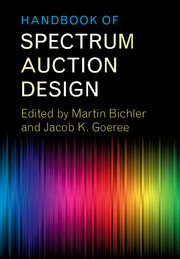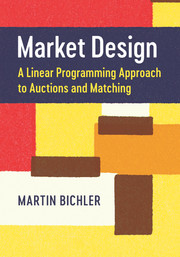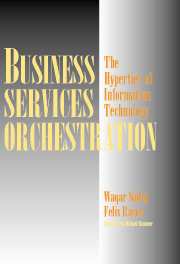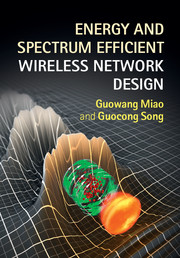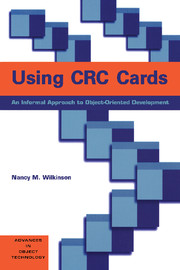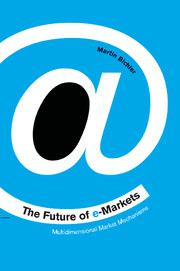Handbook of Spectrum Auction Design
Following the successful PCS Auction conducted by the US Federal Communications Commission in 1994, auctions have replaced traditional ways of allocating valuable radio spectrum, a key resource for any mobile telecommunications operator. Spectrum auctions have raised billions of dollars worldwide and have become a role model for market-based approaches in the public and private sectors. The design of spectrum auctions is a central application of game theory and auction theory due to its importance in industry and the theoretical challenges it presents. Several auction formats have been developed with different properties addressing fundamental questions about efficiently selling multiple objects to a group of buyers. This comprehensive handbook features classic papers and new contributions by international experts on all aspects of spectrum auction design, including pros and cons of different auctions and lessons learned from theory, experiments, and the field, providing a valuable resource for regulators, telecommunications professionals, consultants, and researchers.
- Comprehensive coverage of classic and new auctions saves regulators, telecoms, consultants, and academics time in preparing for spectrum auctions
- Discusses recent developments and summarizes pros and cons of auction designs such as SMRA, CCA, and newer alternatives
- Looks forward to possible designs for secondary markets
Reviews & endorsements
'This superb Handbook is a milestone in the progress of market design. It's a comprehensive analysis of designs, implementation, experimental testing, and bidding experience in auctions and similar markets for spectrum licenses. The authors achieved remarkable success in many auctions after the initial FCC auction began worldwide efforts to allocate licenses more efficiently via market mechanisms. The distinguished contributors report their solutions to difficult problems, the resulting performance, and remaining challenges.' Robert Wilson, Adams Distinguished Professor of Management, Stanford University
'The papers in this volume highlight both the theoretical and the practical issues that arise in spectrum auctions. The book includes contributions from many of the world's leading economists, game theorists, optimizers, and computer scientists. Anyone interested in the practical application of market design and resource allocation will find this text an important reference.' Karla Hoffman, George Mason University, Virginia
'Bichler and Goeree, both important contributors to the field, have curated an exceptional Handbook, which will be an invaluable resource for researchers and practitioners working on the design of auctions and secondary exchanges for spectrum and other applications with complex interdependencies.' Peter Bossaerts, Redmond Barry Distinguished Professor, University of Melbourne
'Spectrum auctions are a remarkable example of ‘technology transfer’ from research to practice, with beautiful theoretical ideas informing current auction designs that regularly generate tens of billions of dollars in revenue. Bichler and Goeree have masterfully assembled the ‘greatest hits’ of this literature, ranging from the early papers that laid the foundations to the latest developments on the 2016 FCC Incentive Auction.' Tim Roughgarden, Stanford University
'This Handbook is the answer to my search for a truly wholistic view on auction designs and will be an extremely valuable resource for consultations with regulatory authorities as well as bid strategy preparations.' Matthias Leonhard, DT Spectrum Projects, Deutsche Telekom
Product details
November 2017Adobe eBook Reader
9781108515306
0 pages
This ISBN is for an eBook version which is distributed on our behalf by a third party.
Table of Contents
- Preface
- Part I. The Simultaneous Ascending Auction:
- 1. Putting auction theory to work: the simultaneous ascending auction
- 2. An equilibrium analysis of the simultaneous ascending auction
- 3. The efficiency of the FCC spectrum auctions
- 4. Measuring the efficiency of an FCC spectrum auction
- Part II. The Combinatorial Clock Auction Formats:
- 5. Combinatorial auction design
- 6. The clock-proxy auction: a practical combinatorial auction design
- 7. Spectrum auction design
- 8. A practical guide to the combinatorial clock auction
- 9. Market design and the evolution of the combinatorial clock auction
- 10. Quadratic core-selecting payment rules for combinatorial auctions
- 11. Core-selecting package auctions
- 12. A new payment rule for core-selecting package auctions
- 13. On the impossibility of core-selecting auctions
- 14. Ascending combinatorial auctions with risk averse bidders
- 15. Properties of the combinatorial clock auction
- 16. Budget constraints combinatorial clock auctions
- 17. (Un)expected bidder behavior in spectrum auctions: about inconsistent bidding and its impact on efficiency in the combinatorial clock auction
- Part III. Alternative Auction Designs:
- 18. A combinatorial auction mechanism for airport time slot allocation
- 19. A new and improved design for multiobject iterative auctions
- 20. Hierarchical package bidding: a paper and pencil combinatorial auction
- 21. Assignment messages and exchanges
- 22. The product-mix auction: a new auction design for differentiated goods
- 23. The continuous combinatorial auction architecture
- 24. Coalition-based pricing in ascending combinatorial auctions
- Part IV. Experimental Comparisons of Auction Designs:
- 25. Experiments testing multiobject allocation mechanisms
- 26. Laboratory experimental testbeds: application to the PCS auction
- 27. An experimental test of flexible combinatorial spectrum auction formats
- 28. On the impact of package selection in combinatorial auctions: an experimental study in the context of spectrum auction design
- 29. Do core-selecting combinatorial clock auctions always lead to high efficiency? An experimental analysis of spectrum auction designs
- 30. Spectrum auction design: simple auctions for complex sales
- Part V. The Bidders' Perspective:
- 31. Winning play in spectrum auctions
- 32. Up in the air: GTE's experience in the MTA auction for personal communication services licenses
- 33. Bidding complexities in the combinatorial clock auction
- 34. Strategic bidding in combinatorial clock auctions – a bidder perspective
- 35. Impact of budget-contraints on the efficiency of multi-lot spectrum auctions
- Part VI. Secondary Markets and Exchanges:
- 36. Spectrum markets: motivation, challenges, and implications
- 37. Designing the US incentive auction
- 38. Solving the station repacking problem
- 39. ICE: an expressive iterative combinatorial exchange
- 40. ACE: a combinatorial market mechanism
- Outlook.

